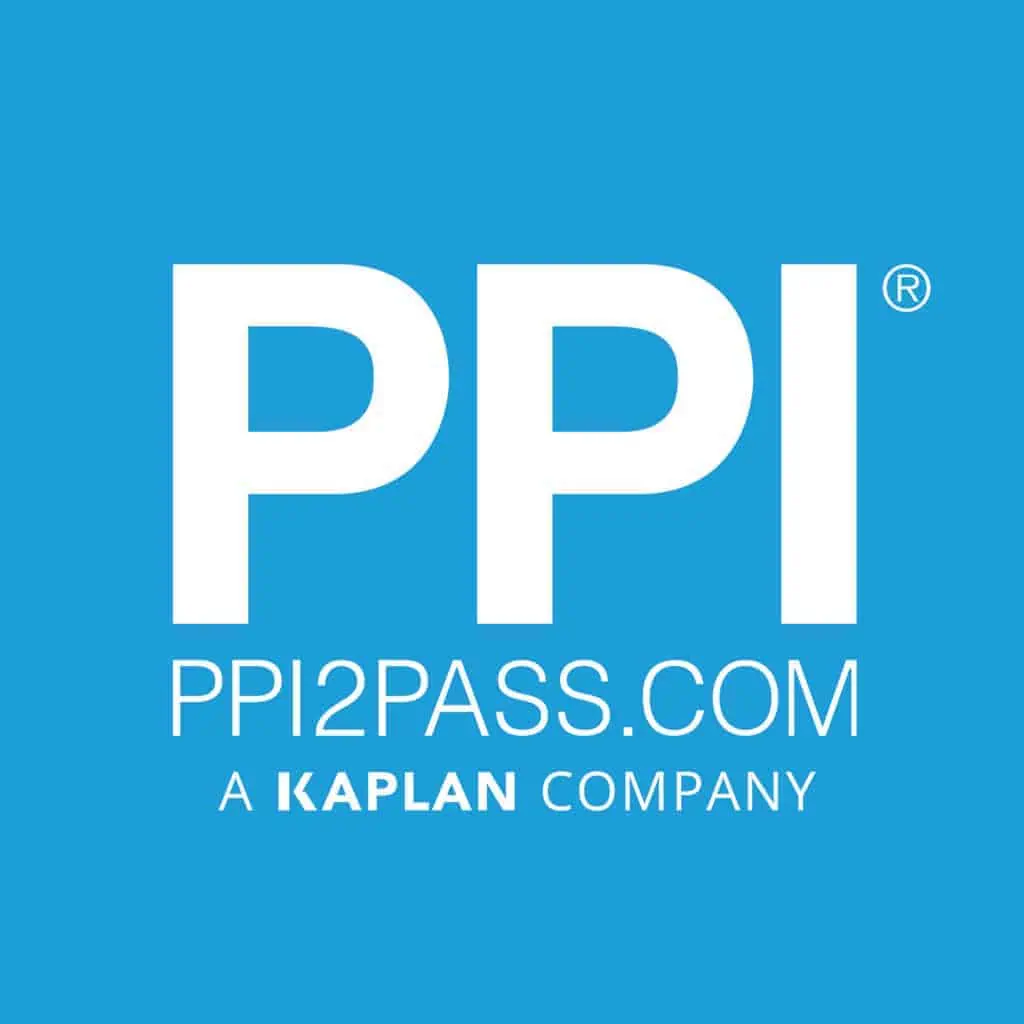In this article (and video above), I outline 10 common reasons why people are failing the PE Exam because by understanding these reasons, they can turn a short-term setback into a stepping stone for long-term success.
Let’s explore some of the common pitfalls that can lead to failing the PE exam. This isn’t about pointing fingers or feeling down – it’s about identifying these obstacles so you can overcome them in your next attempt.
1 – Being Unprepared:
The PE exam tests a wide range of engineering concepts and requires a comprehensive understanding of each topic. Many candidates make the mistake of focusing only on areas where they feel confident, neglecting weaker subjects. A thorough preparation means covering all topics listed in the NCEES® specification, understanding the underlying principles, and practicing a variety of problems. Diversifying your study material and methods can also help strengthen weak areas.
2 – Poor Time Management:
The PE exam’s time constraint means that efficient time management is crucial. Candidates often spend too long on complex questions, leaving insufficient time for others. A strategic approach would be to first address questions you are confident in, then return to the tougher ones. Practicing under timed conditions can help develop a sense of how long to spend on each question and improve your ability to work under time pressure.
3 – Lack of Rest:
Adequate rest is critical for optimal cognitive functioning. Intense study sessions without sufficient rest can lead to burnout, affecting concentration and memory during the exam. It’s important to maintain a balanced study schedule, ensuring regular breaks and a good night’s sleep, especially in the days leading up to the exam. A well-rested mind is more efficient and focused, which is essential for a lengthy and demanding exam like the PE.
4 – Underestimating the Exam:
Some candidates may not fully appreciate the complexity of the PE exam, leading to inadequate preparation. It’s essential to understand that this exam requires more than just a basic understanding of engineering principles; it tests your ability to apply these principles in complex scenarios. Respect the difficulty level of the exam and prepare accordingly, starting well in advance.
5 – Wrong Study Materials:
Using outdated or irrelevant study materials can be a major setback. The PE exam content evolves, and so should your study resources. It’s crucial to use current and comprehensive materials that align with the latest exam specifications and formats. This includes textbooks, practice exams, and online resources that are up-to-date and relevant to the current exam format.
6 – Distractions While Studying:
Distractions can severely hinder your ability to study effectively. Social media, smartphones, and other forms of entertainment can eat into your valuable study time. Creating a dedicated study space, setting specific study hours, and using techniques like the Pomodoro Technique can help minimize distractions and enhance focus.
7 – Exam Stress and Anxiety:
High levels of stress and anxiety can impair your ability to perform well in the exam. Techniques such as mindfulness, deep breathing exercises, and positive affirmations can be effective in managing stress. Regular exercise, a healthy diet, and sufficient sleep also play a significant role in reducing anxiety levels.
8 – Not Knowing Exam Specifications:
A deep understanding of the NCEES exam specifications is crucial for targeted and effective study. These specifications outline the topics and subtopics that will be covered in the exam, allowing you to allocate your study time appropriately. Familiarizing yourself with these specifications ensures that no key area is overlooked during your preparation.
9 – Unfamiliarity with the NCEES® Reference Handbook:
The NCEES Reference Handbook is an indispensable resource during the PE exam. It contains formulas, tables, and other reference material that are essential for solving exam problems. Prior familiarity with the layout and content of this handbook can save valuable time during the exam. It’s beneficial to practice looking up information in the handbook as part of your study routine.
10 – Not Being Mentally Prepared on Exam Day:
Mental preparation is as important as academic preparation. This includes being in the right state of mind on the day of the exam. Strategies such as visualization, positive self-talk, and relaxation techniques can help maintain a calm and focused mindset. A healthy breakfast and arriving early at the exam venue can also contribute to a positive start to the exam day.
Failing the PE exam doesn’t define you as an engineer. It’s a learning experience. By understanding where things went wrong and taking proactive steps, you can turn this setback into an opportunity for growth. Success in the PE exam, like in engineering itself, comes from hard work, perseverance, and continuous learning.
Remember, every challenge is an opportunity to grow. Keep pushing forward, stay dedicated, and your efforts will pay off.
This Episode Is Brought to You by PPI
PPI
I hope you found this article helpful. In upcoming articles, I will solve some more PE exam practice problems and answer other questions from our subscribers. Pass the PE Exam videos will publish weekly, so be sure to click the subscribe button so you don’t miss something that could make a substantial difference in your exam result.
Lastly, I encourage you to ask questions in the comments of this video, or on this page and I’ll read and respond to them in future videos. So, if there’s a specific topic you want me to cover or answer, we have you covered.
I’ll see you next week… on Pass the PE Exam
Anthony Fasano, P.E.
Engineering Management Institute
Author of Engineer Your Own Success

Leave a Reply